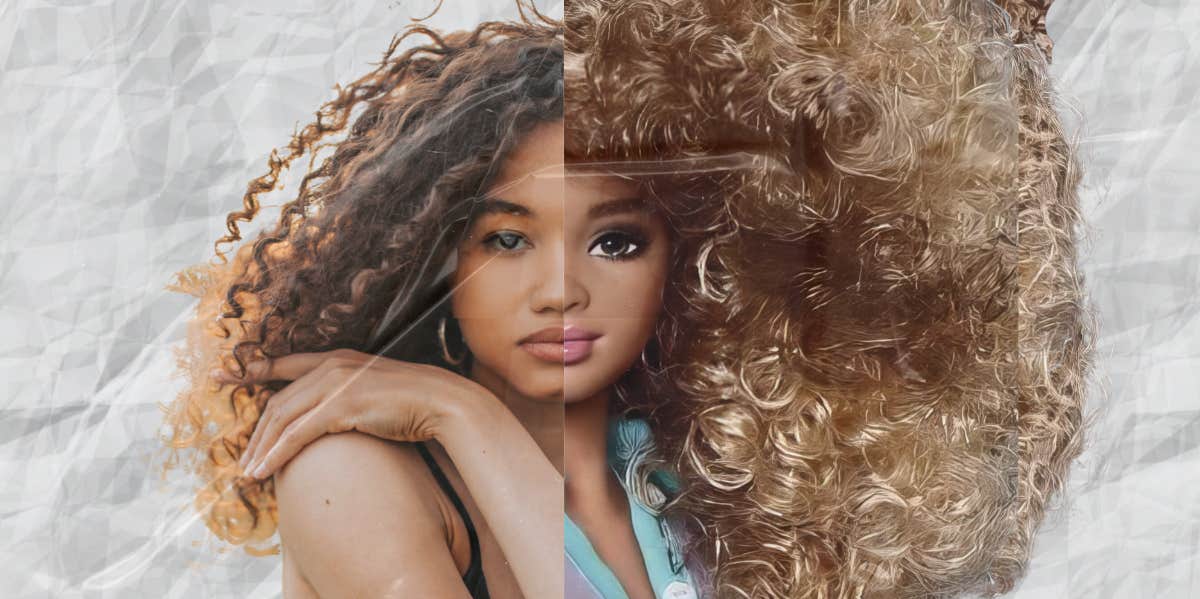Why We're All More Like Barbie (And Ken) Than We Might Think
While we may not be at the hands of a child puppeteering our fate, we are just as attached to these nouns and the sense of identity they can bring.
 Vlada Karpovich / Canva
Vlada Karpovich / Canva By Rebekah Crilly
Dig a little deeper — beneath the shiny plastic veneer and the blinding pink — and there’s a void; a question mark that serves as the undercurrent for the whole Barbie movie: What is my purpose?
Much like Barbie, many of us will spend our lives in pursuit of this answer — just without the cute ski and bicycle montage.
Some of us will find it in our careers, in parenthood, or in whatever other roles we might assume along the way. Barbie is no different. She serves as a very tangible example of playing out a role perceived to be fundamental to her entire being.
While we may not be at the hands of a child puppeteering our fate, we are just as attached to these nouns and the sense of identity they can bring.
It is no surprise that Greta Gerwig has broken multiple records with her interpretation of Barbieland. Aside from the eye candy in the form of Robbie and Gosling, there is a tone that makes Barbie accessible to us all.
On the face of it, it stands as a commentary on the female experience of living in a largely still patriarchal society, but any fool knows Ken is just as broken as Barbie, struggling to find his place in the world beyond his association with his long-term girlfriend.
It is in their combined experience of identity crisis that we can all find those moments of “hey, that’s me” even if their realities exist on a much more literal plain.
The movie sees us follow Stereotypical Barbie, the most Barbie version of herself. That is, she is not Physicist Barbie or President Barbie but exists in a bubble of everything we perceive to be quintessentially Barbie including a blonde blow-dry and legs for days.
This has contented Barbie for as long as she has existed until, in one paradigm-shifting moment (and in the midst of a killer dance routine), a thought occurs to her that seems to unhinge her entire sense of self.
That which had always defined Barbie begins to fall apart. Her tippy-toes collapse, she develops bad breath, and things just generally start to go wrong. She experiences what psychologists like to call “identity paralysis”. A feeling of stuckness as a result of losing a defining element of your identity.
If Barbie is not her stereotypical self, who is she? And herein lies the problem with our perception of roles.
When we tether our identity to roles, we are at the mercy of something external to ourselves. Roles are important in providing validation of our values and in shaping our everyday worlds but they are not who we are.
Just as Ken is not just “Barbie’s boyfriend,” you are not just your job or just a parent — you are you.
In this sense, it is vital that we do not anchor our identity solely to what we do but focus instead on why we do things — the qualities that underpin our choices. By honing in on what makes us do what we do, we can more easily realign when change occurs — i.e., when our feet fall flat or our thighs start to crease.
In that heart-wrenching moment when Barbie wonders who she is if she is not “stereotypically pretty Barbie,” I wonder, had she considered the warmth she possessed; her generosity of spirit; her unfailing optimism and determination to do better. Those other Barbie characteristics that we all know to define her.
In that, she might have found solace, even if her heels now touched the ground.
Barbie and Ken’s quest for purpose — though in the context of dolls existing in a fictional world — somehow feels painfully real. How often have we all questioned ourselves and our purpose if not for something or someone else?
The now-famous monologue by the character Gloria — Barbie’s human who has inadvertently infected Barbie with her own feelings of self-doubt — outlines this eternal struggle to find one’s self-worth from the point of view of the external world. But as Gloria points out, “It’s too hard. It’s too contradictory,” and, as Barbie realizes, it must come from within.
In the end, Barbie chooses to break from her plastic mold and opts for a human life, even if it feels “achy” and uncomfortable. Ken, now without his Barbie, realizes that he is “Kenough” and begins his own journey of soul-searching. It is in this message that there is real power.
One’s identity isn’t defined by fixed traits but by an evolving collection of behaviors and experiences.
Purpose cannot be neatly packaged into a box with matching accessories. It is continual growth to be embraced and nurtured through constant self-discovery.
Rebekah Crilly is a writer, poet, and freelance copywriter. She's a contributor to Unwritten, Pop Matters and Amendo, and writes about health and wellness, lifestyle, and pop culture topics.

